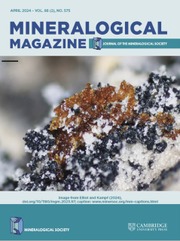Andrew Peckett, who died in Durham City on March 19th 2018, was born on 23rd December 1943. He was educated at Cambridge University and graduated with a II-I in Mineralogy, Petrology and Geology. He was awarded a PhD there in July 1969 for a thesis entitled ‘The Volcanic Rocks of the Dodecanese, Greece; a Geochemical Study’. He then immediately joined the staff to work as a Research Assistant on electron microprobe analysis of Apollo 11 lunar samples. On 1st August 1970 these skills were transferred to the Department of Geology at Durham University where he became first a Senior Research Assistant, promoted to Senior Experimental Officer two years later and then Lecturer on 1st October 1974.
He joined a Department at Durham that, under the leadership of Professor Kingsley Dunham FRS and then Professor Malcom Brown FRS, had long gained a reputation for eminence in petrology and geochemistry. Brown, returning from the USA, arrived in Durham in 1967 with such high international distinction that he carried with him a contract from NASA to work on the Apollo Programme. He swiftly assembled his research team with Henry Emeleus (petrology), Grenville Holland (geochemistry) and Roy Phillips (mineralogy). The pending arrival of a microprobe in 1970 to add to the already active XRF PW1212 spectrometer allowed Brown to add Andrew Peckett to his team.
Within the Department of Geology Andrew Peckett proved to be a fine, careful and patient teacher who took those duties seriously. He supported many of the research students in petrology and geochemistry with instruction on the microprobe and again his care and integrity always shone through. In October 1988, using his excellent computing skills, he became an accomplished Departmental Administrator with a careful eye for detail. He took early retirement on 31st December 1996.
Andrew Peckett was a bachelor who lived alone in a bungalow that was neat and with a garden which he maintained that was immaculate. Outside of the Department he cultivated few friends, although, as so often happens, those who came to know him found comfort in his presence and enjoyed his company. His great interest was genealogy and he would happily trace back the origins of those families who sought his expertise.
From the outset Andrew Peckett was an ideal and loyal member of the Apollo research team and his Department. He was steadfast and always played his part tirelessly, meticulously and without complaint. His main research papers were those shared with his immediate colleagues in the Department, mainly Brown, Emeleus, Holland and Phillips. But his great contribution to science came when, in 1992, he took on the unfinished drafts of Roy Phillips and Henry Norman to produce ‘The Colours of Opaque Minerals’ for Wiley. This book, which occupied 471 pages, set out to answer the question “why do particular opaque minerals have the colours that we see? It includes not only the colour of an opaque mineral seen in plane polarized light but also the colours between crossed and slightly uncrossed polars”. Well reviewed, this important and comprehensive text represented Peckett's magnum opus.


